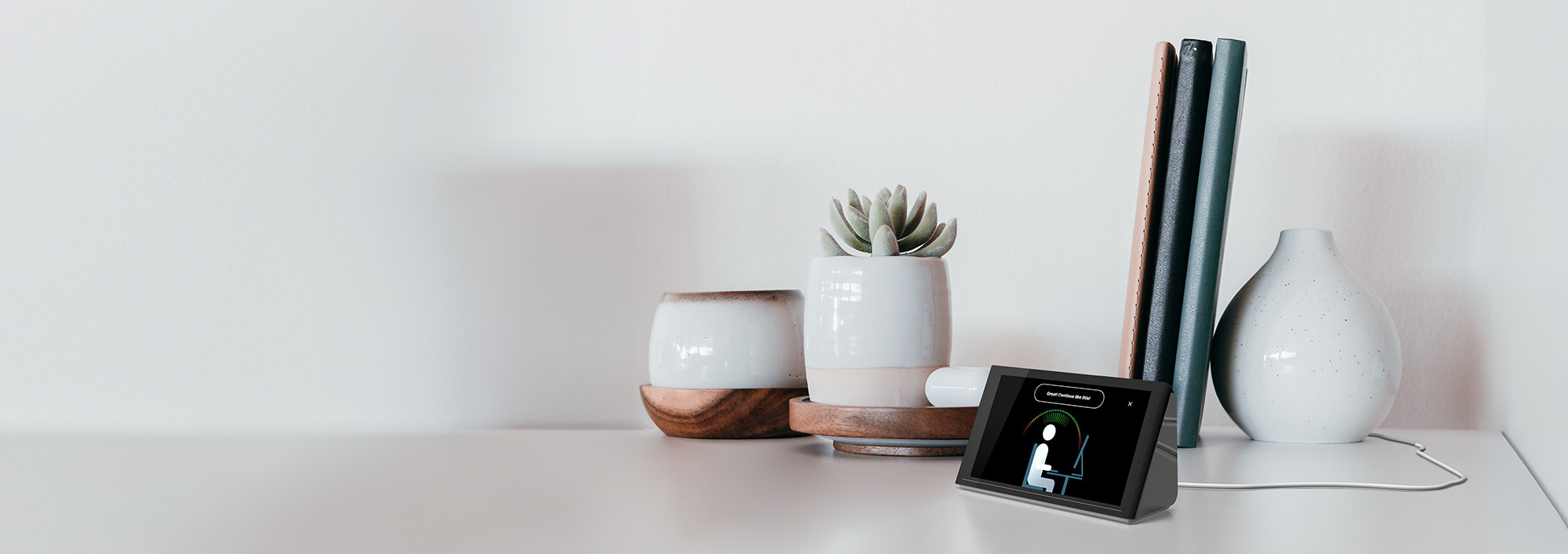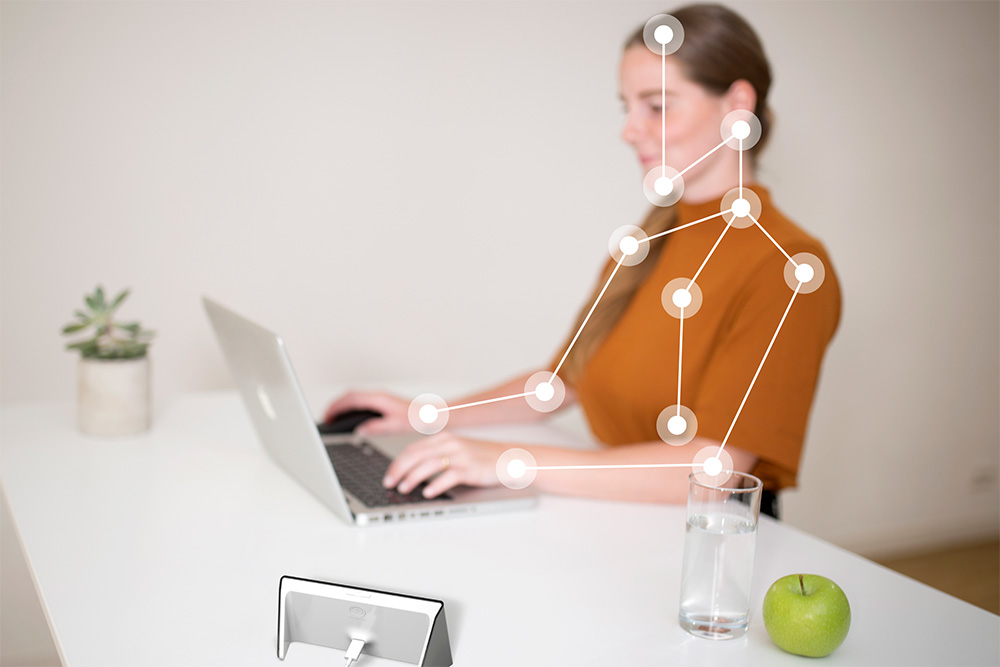AI technology in telemedicine
Personal health assistant in the workplace
At DMEA, Fraunhofer IGD will be showcasing a wireless and contact-free system that serves as a personal health assistant in the workplace. As an offshoot of the CareCam project, STRAP sets new standards for healthy work practices in the office. Developed in close collaboration with industry partner Deep Care GmbH, STRAP uses high-precision sensor technology and AI-based analysis to continuously record users’ vital data and provide individualized recommendations for improving their well-being. Members of the research team will be offering insights into the current status of their project at the DMEA (9th - 11th April 2024) in Berlin.
Rostock: Sitting at a PC for long periods strains the eyes, back and muscles. This causes stress levels to rise, resulting in tension, headaches and back pain. To mitigate these outcomes, researchers at the Fraunhofer Institute for Computer Graphics Research IGD have developed CareCam, a software package that employs image data and artificial intelligence (AI) to alert users when their stress levels begin to rise. At the DMEA in Berlin, Fraunhofer IGD will be joined by its industrial partner Deep Care GmbH in presenting the latest version of the system.
Fraunhofer IGD expertise combined with sensor technology from Deep Care
“STRAP marks a significant advance in the field of occupational health management,” explains Dr. Gerald Bieber, head of the project at Fraunhofer IGD. “The system combines a large number of sensors in a handy piece of hardware designed to monitor vital data such as a person’s pulse, breathing or heart rate variability.” Taken together with the movement and posture data provided by hardware from Deep Care GmbH, the result is a holistic system for maintain and improving well-being at VDU workstations.
“Fraunhofer IGD is the leading expert in the field of sensor-based pattern recognition using AI methods,” says Lukas Heck, project manager at Deep Care GmbH. “The collaborative project is of great value to us here at Deep Care, as the expertise and innovative strength of Fraunhofer IGD has decisively advanced the development of STRAP.” The research team offers comprehensive scientific support to industry partners such as IT system integrators in the field of telemedicine and occupational health management. This support covers a wide range – conducting studies, acting in an advisory capacity, developing methodological concepts, supervising implementation in practice and managing the market launch.
Focus on data protection in personalized health support
In contrast to systems based on webcam technology such as CareCam, Fraunhofer IGD employs a specialized sensor system for STRAP that calculates the parameters using precise distance measurements and motion detection, all data being anonymized. For example, information on facial recognition, skin color, hairstyle or other personal characteristics are not recorded; the data remains exclusively with the user and is only stored locally so that stress assessment is possible over a prolonged period of time.
The system not only monitors the blink rate, but also recognizes changes in the posture and facial expression of the individual seated in front of the screen. STRAP analyzes the information captured to assess the stress level and suggests appropriate remedies. Dr. Gerald Bieber: “If the system detects signs of stress or awkward posture, it offers solutions such as adjusting the sitting position, performing a short stretching exercise or sitting back and meditating.”
Flexible system for office and home workers
The big advantage over camera-based systems is that STRAP is able to record vital data and movements regardless of the lighting situation at the workplace or the body shape and features of the user. The handy system is quick and easy to set up, which makes it a truly mobile solution. This means that it can be used not only in the context of occupational health management on company premises but also as a support system for users working from home, and ultimately as a telemedical application.
Through the use of artificial intelligence, the system learns to even out disturbance variables and tailor suggestions for exercise breaks or other measures appropriate to the individual user. The digital assistant only proposes interventions if the subject maintains the same unhealthy posture at the PC for a lengthy period of time or if the vital signs suggest a dangerous build-up of stress levels.
The STRAP project is funded by the German Federal Ministry of Economics and Climate Protection.
Event information
Researchers from Fraunhofer IGD will also be presenting STRAP and other telemedical solutions for improving patient care in the framework of a lecture session at the DMEA. This will take place on Tuesday 9th April (10:25 - 10:35 a.m.) in the _HUB 1 program area, Hall 1.2.
 Fraunhofer Institute for Computer Graphics Research IGD
Fraunhofer Institute for Computer Graphics Research IGD
